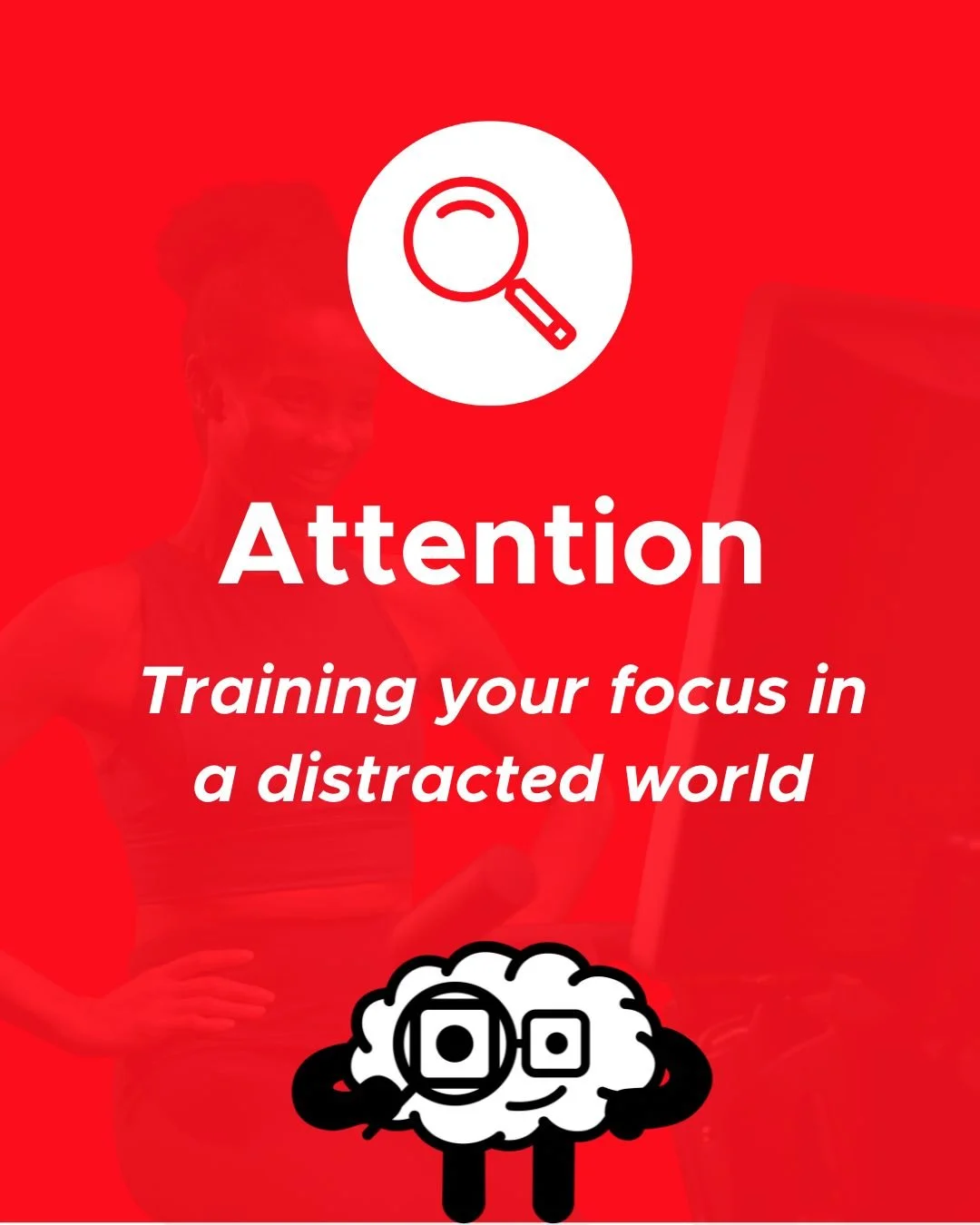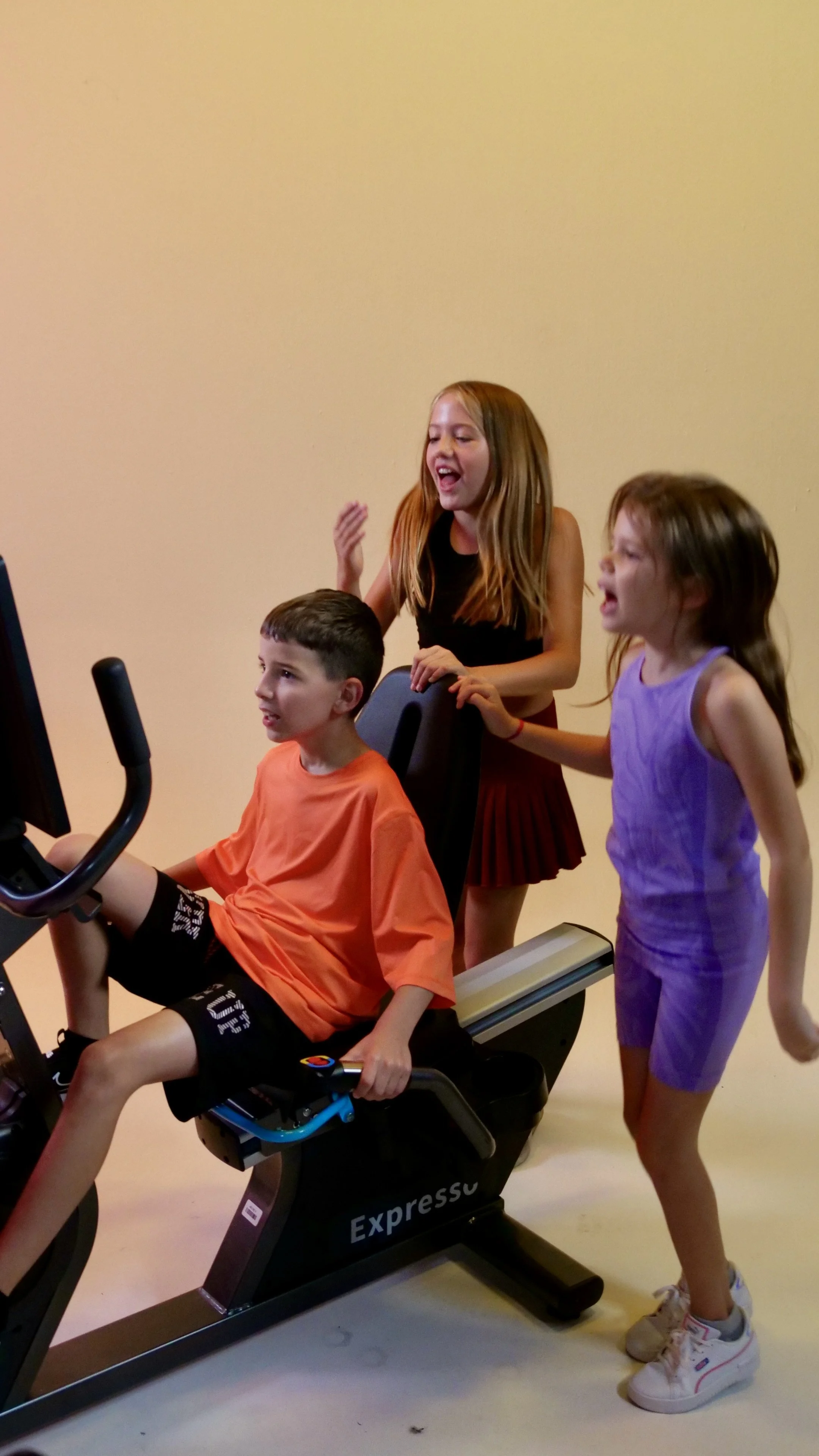Attention: Training Focus in a Distracted World
Why Attention Matters
In today’s world, distractions are everywhere. From constant phone notifications to the demands of multitasking at work or school, it’s no wonder many of us struggle to stay focused. Attention is the skill that allows us to filter out noise, prioritize what matters, and perform tasks efficiently. Without it, productivity, learning, and even safety suffer.
For teens and young adults, the stakes are especially high. Studies show that heavy digital media use is linked to greater symptoms of attention-deficit/hyperactivity disorder (ADHD)【1】. For older adults, lapses in attention can affect everything from safe driving to managing medications【2】.
How Exercise Supports Attention
The good news? Exercise is one of the most effective tools for improving attention. Aerobic activity boosts neurotransmitters like dopamine and norepinephrine, which play a key role in sustaining focus【3】.
Adding a cognitive challenge—like steering through obstacles while riding—forces the brain to ignore distractions and respond only to what matters. Over time, this strengthens attentional control. Clinical trials show that dual-task trainingcan improve attention and executive functions in older adults【4】, highlighting the power of combining physical and mental effort.
Training Attention Through Play
Blue Goji’s games naturally challenge attention by requiring players to focus on multiple elements at once. With Brain Skills Tracking, we can now measure the amount of time you spend sharpening focus.
Examples:
Obstacle-dodging games force you to sustain attention for long periods and quickly identify hazards.
Dynamic game environments keep you alert as conditions change without warning requiring real-time awareness of environments and sustained attention to navigate obstacles.
In combat/fighting style games, attention is exercised as you develop situational awareness and rapid attention shifting to detect and respond to opponent moves.
Every second you stay engaged is attention training in action—and now it’s measurable.
Why It Matters for Different Ages
Students & Teens: Strengthening attention improves learning outcomes and helps manage distractions in digital-heavy environments【1】. For those with ADD/ADHD, consistent attention training can provide real-world benefits.
Adults at Work: Better focus translates to productivity, faster task completion, and reduced errors.
Older Adults: Stronger attention can support independence, ensuring safety while driving, cooking, or managing complex tasks because it betters the awareness of surroundings for more safe movement.【2】【4】.
Putting It Into Practice
Here are three ways to use Brain Skills Tracking to build focus:
Play High-Engagement Games: Pick games with frequent obstacles and challenges that require constant vigilance.
Track Attention Time: After each session, look at your dashboard to see how long your brain stayed in “focus mode.”
Set a Goal: Gradually increase your attention training minutes week by week.
The Takeaway
Attention is one of the most valuable skills you can build—and one of the easiest to lose in a distracted world. With Blue Goji’s Brain Skills Tracking, you can now train and measure your focus while you ride. Every time you dodge an obstacle, steer with precision, or sustain attention in a game, you’re building sharper mental endurance.
Your cardio workout just became a focus workout.
📚 References
Ra, CK, et al. Association of digital media use with subsequent symptoms of attention-deficit/hyperactivity disorder among adolescents. JAMA, 2018. jamanetwork.com
Ball, K, et al. Effects of cognitive training interventions with older adults: A randomized controlled trial. JAMA, 2002. jamanetwork.com
Pontifex, MB, et al. Exercise improves behavioral, neurocognitive, and scholastic performance in children with attention-deficit/hyperactivity disorder. J Pediatr, 2013. pubmed.ncbi.nlm.nih.gov
Li, C, et al. Effects of dual-task training on cognition and motor function in older adults with MCI: A randomized controlled trial. Front Aging Neurosci, 2023. pubmed.ncbi.nlm.nih.gov


